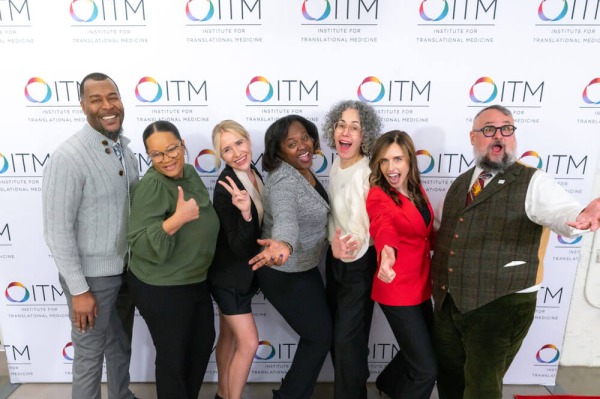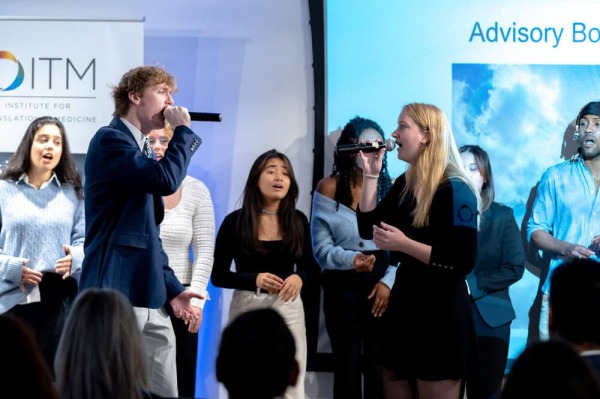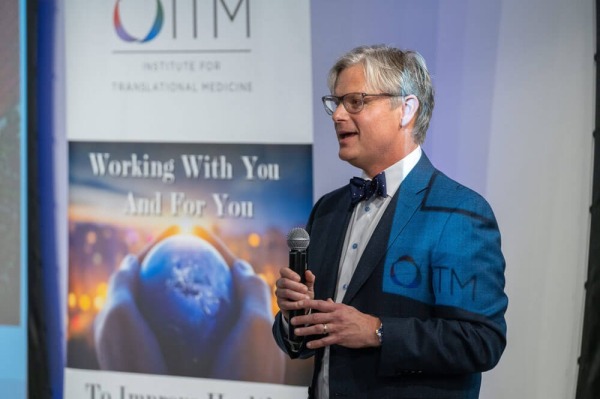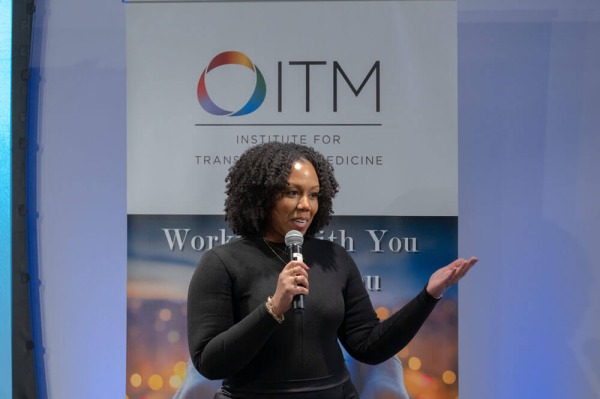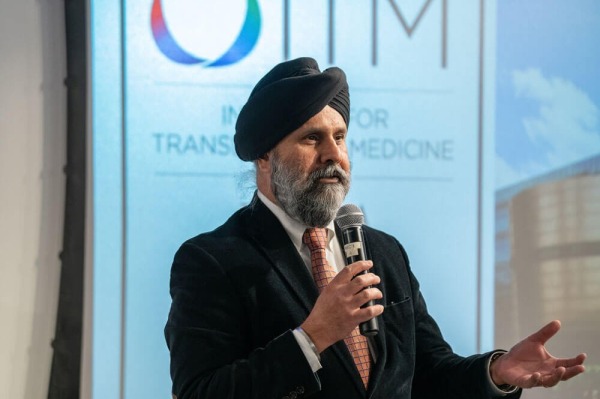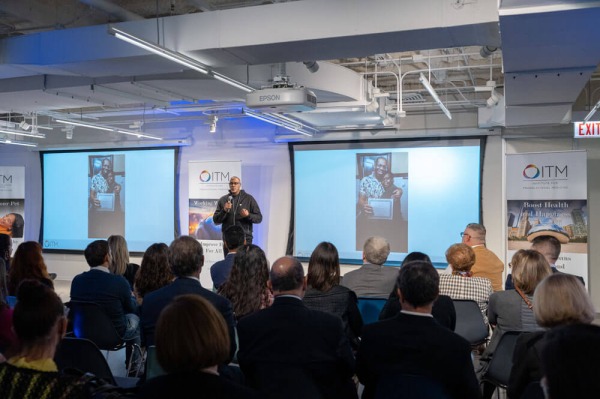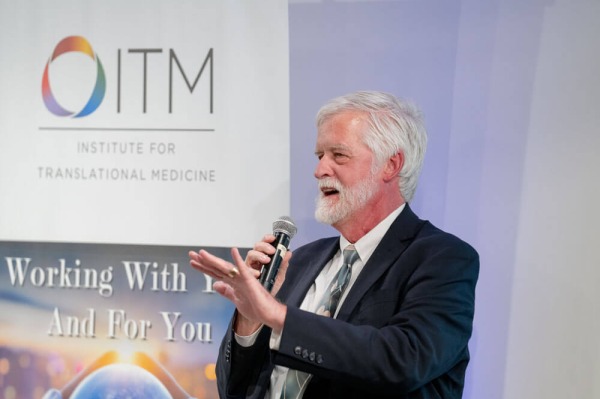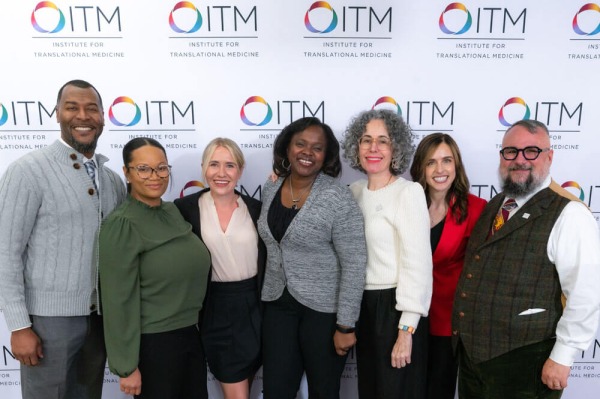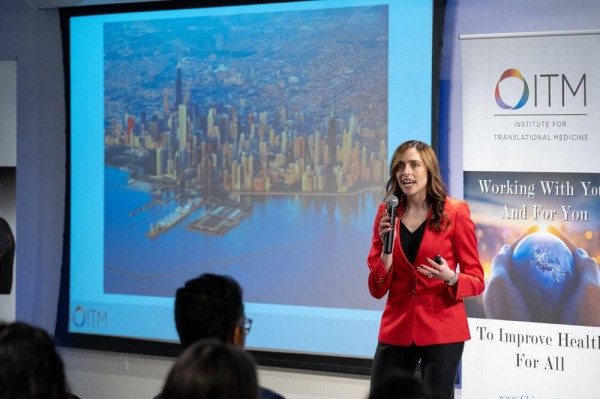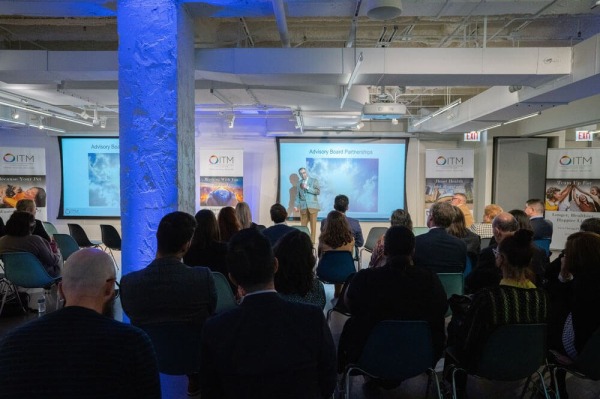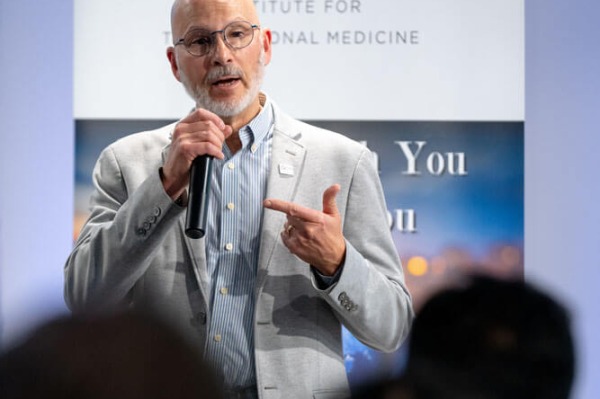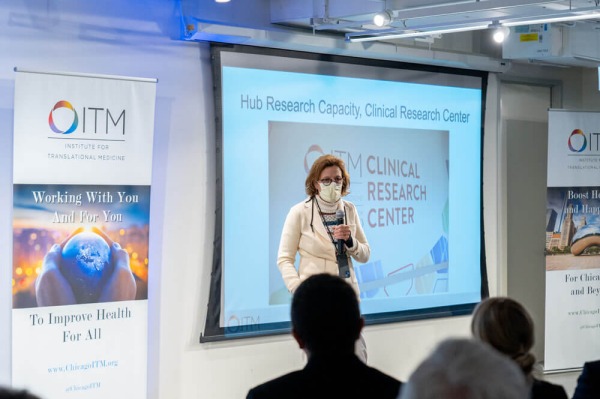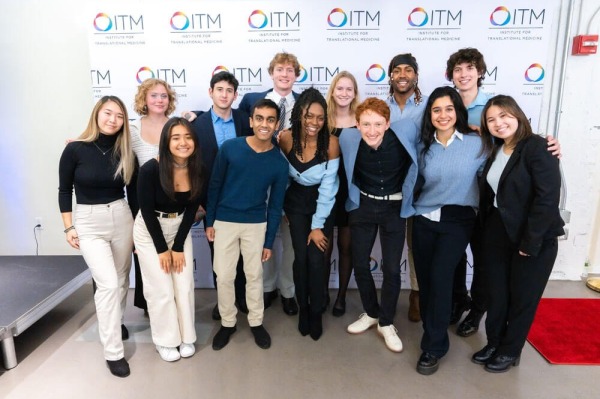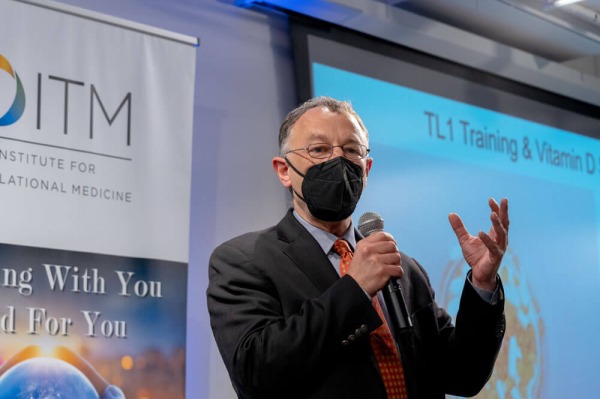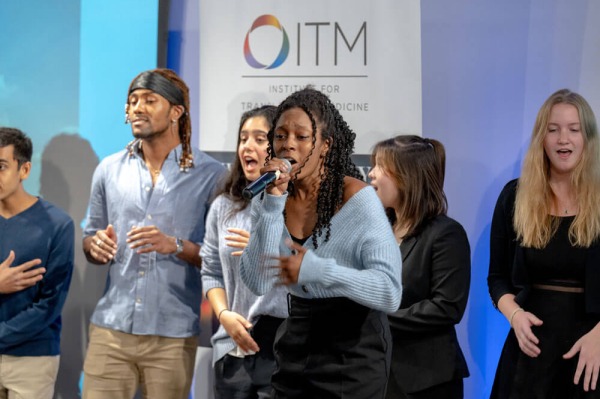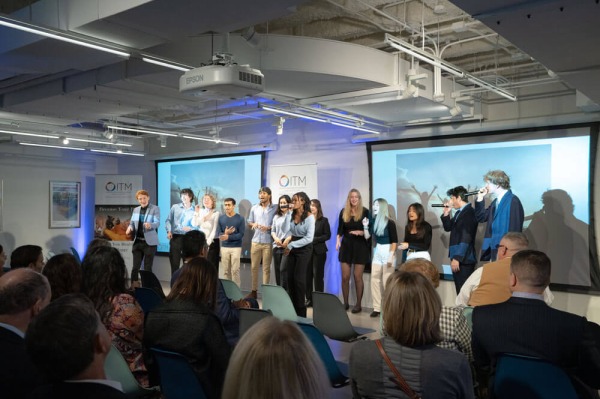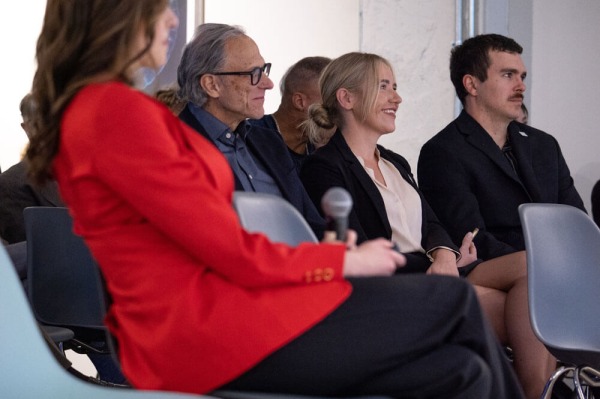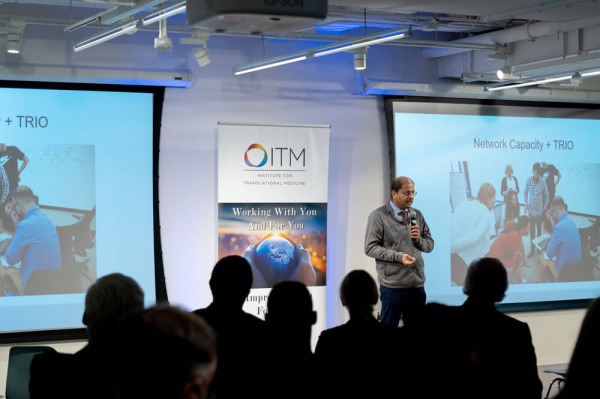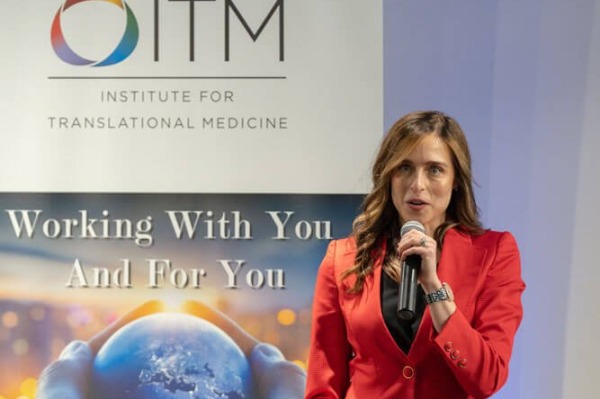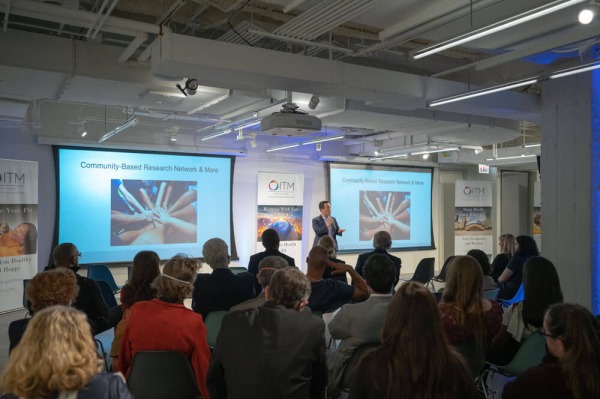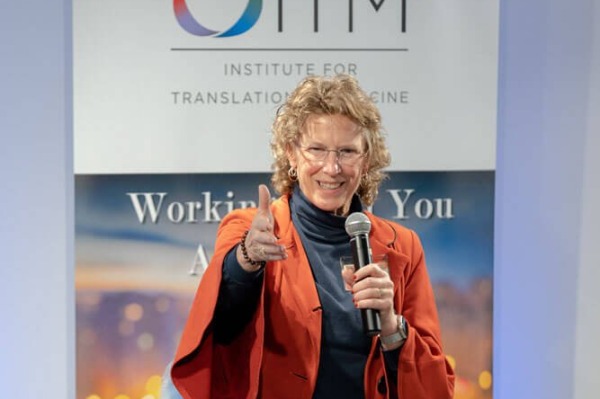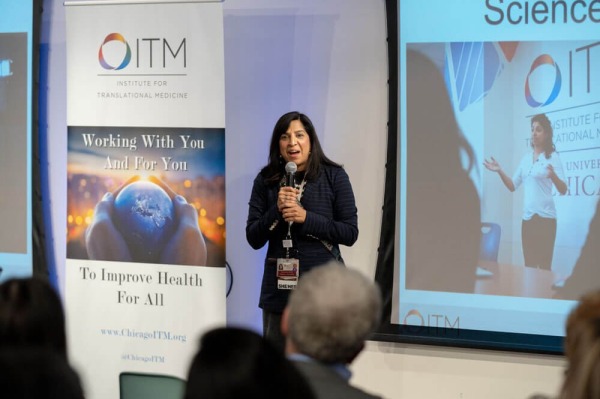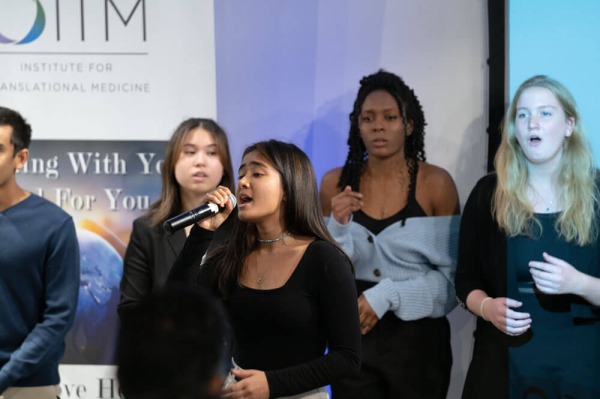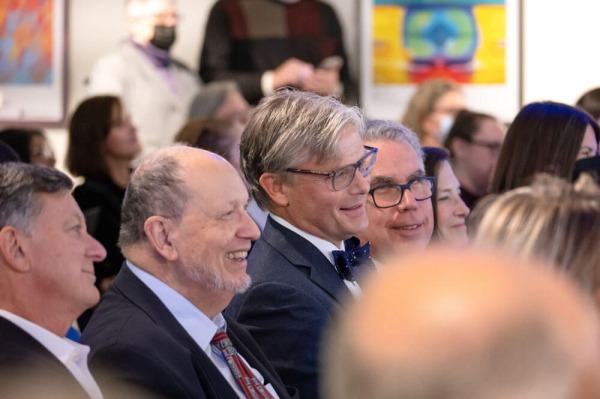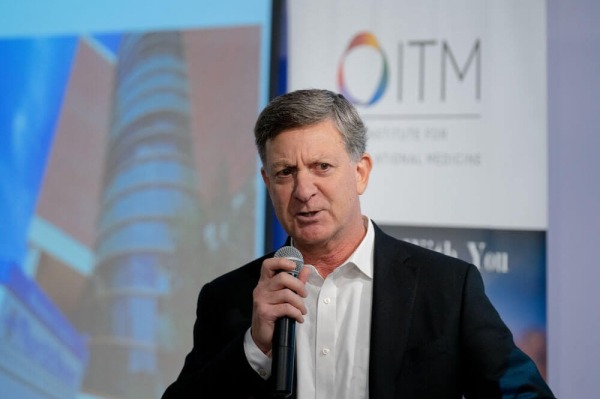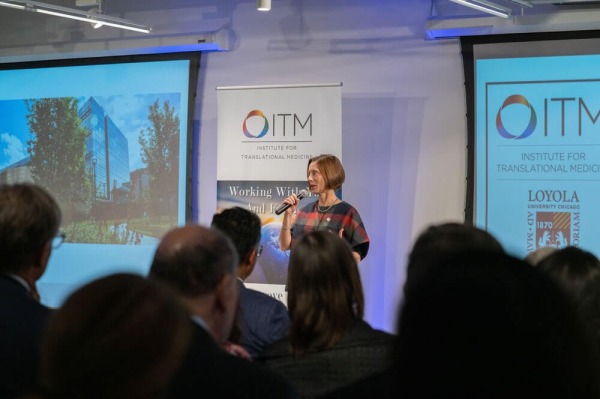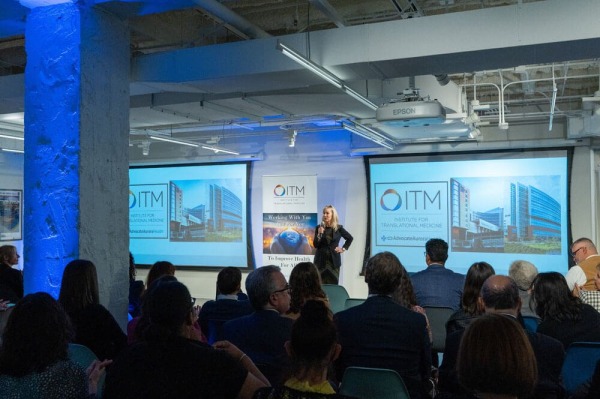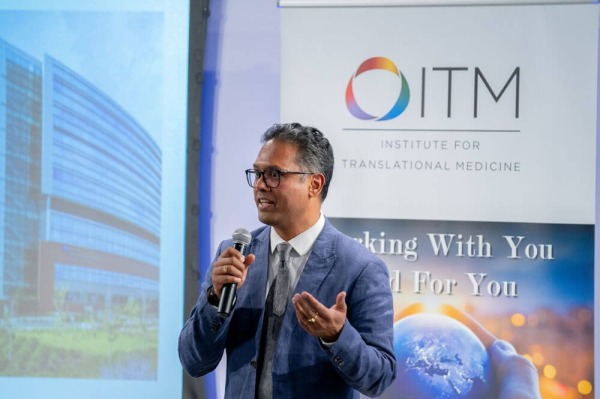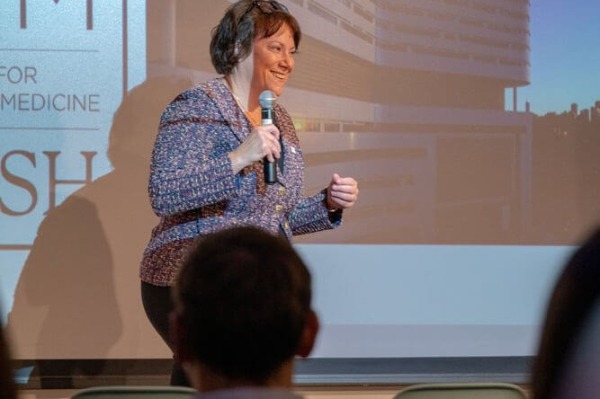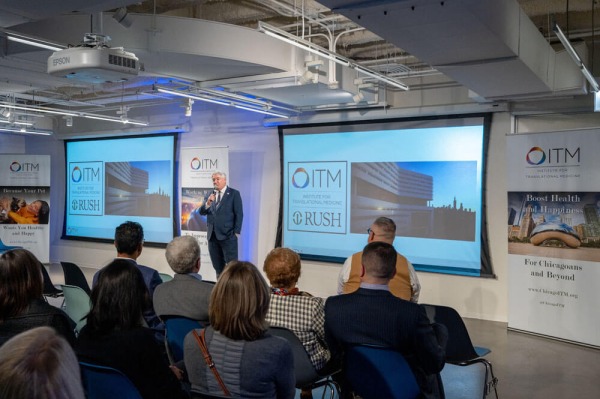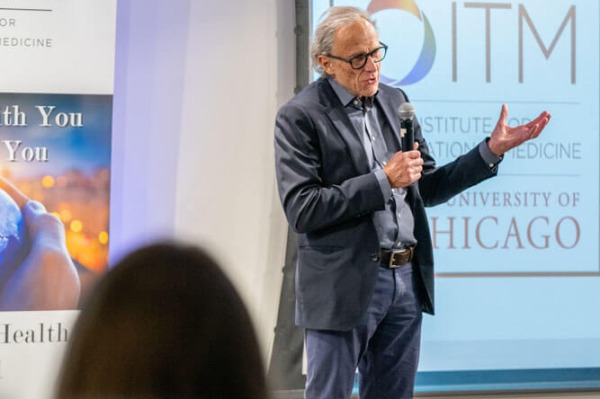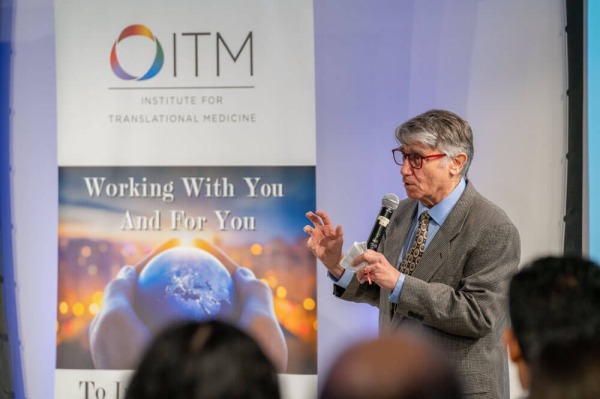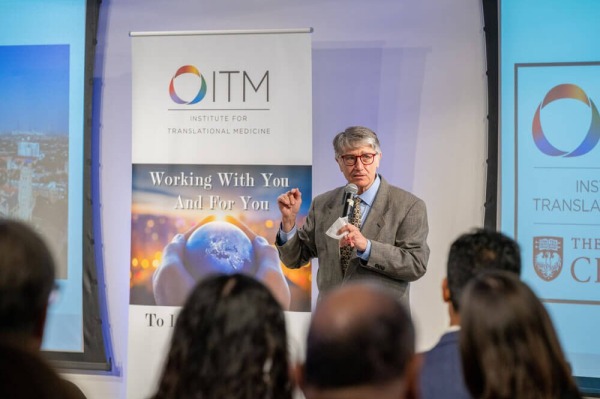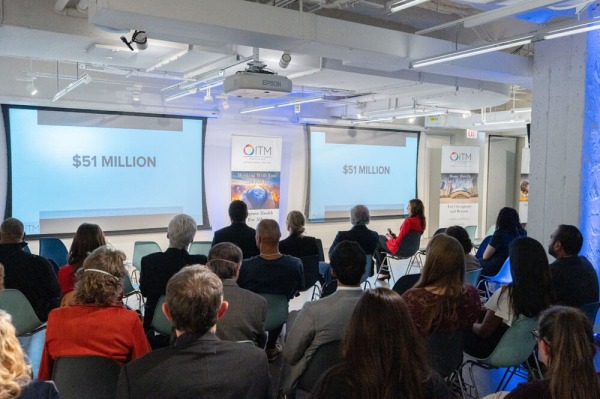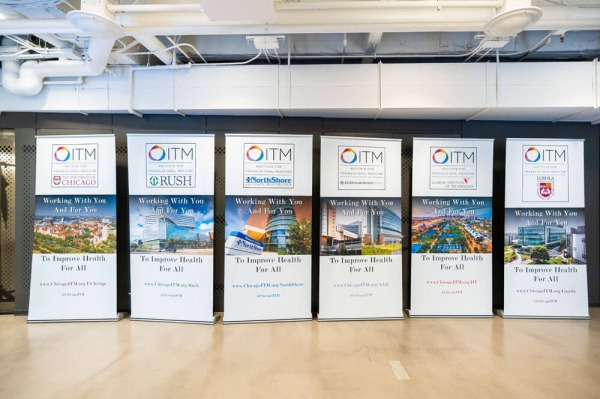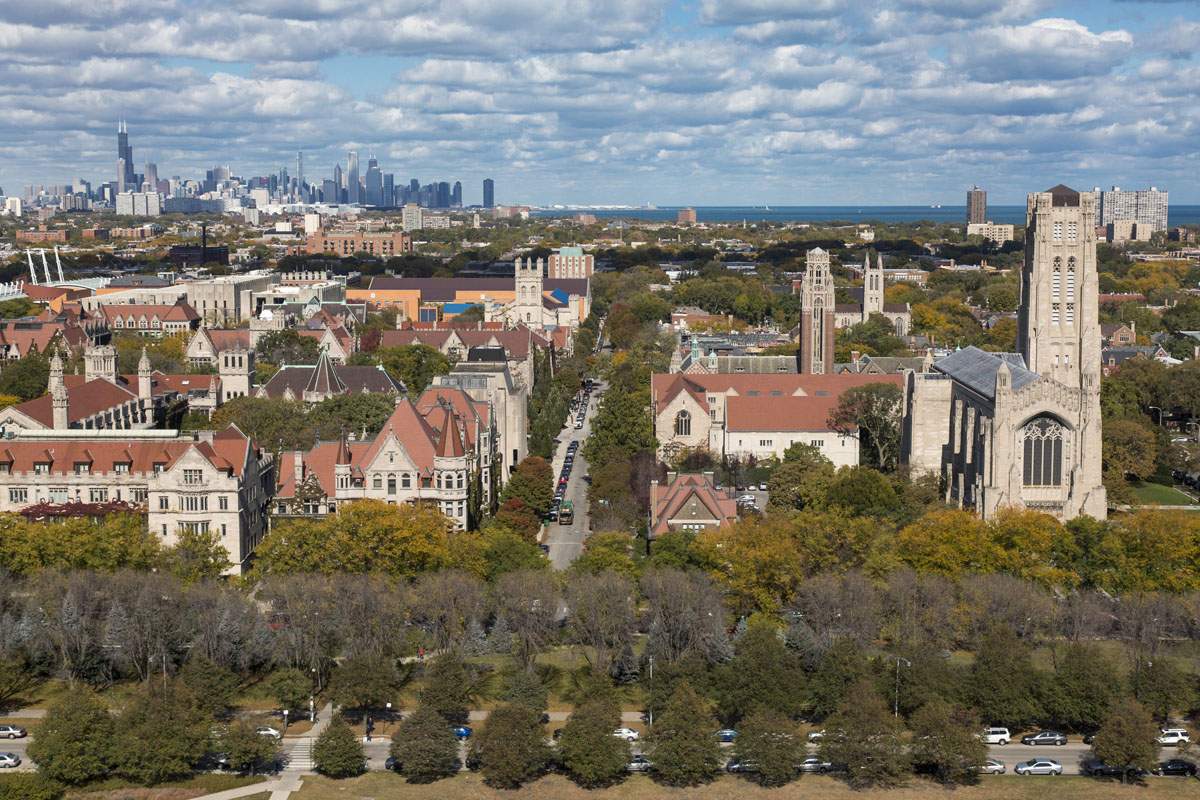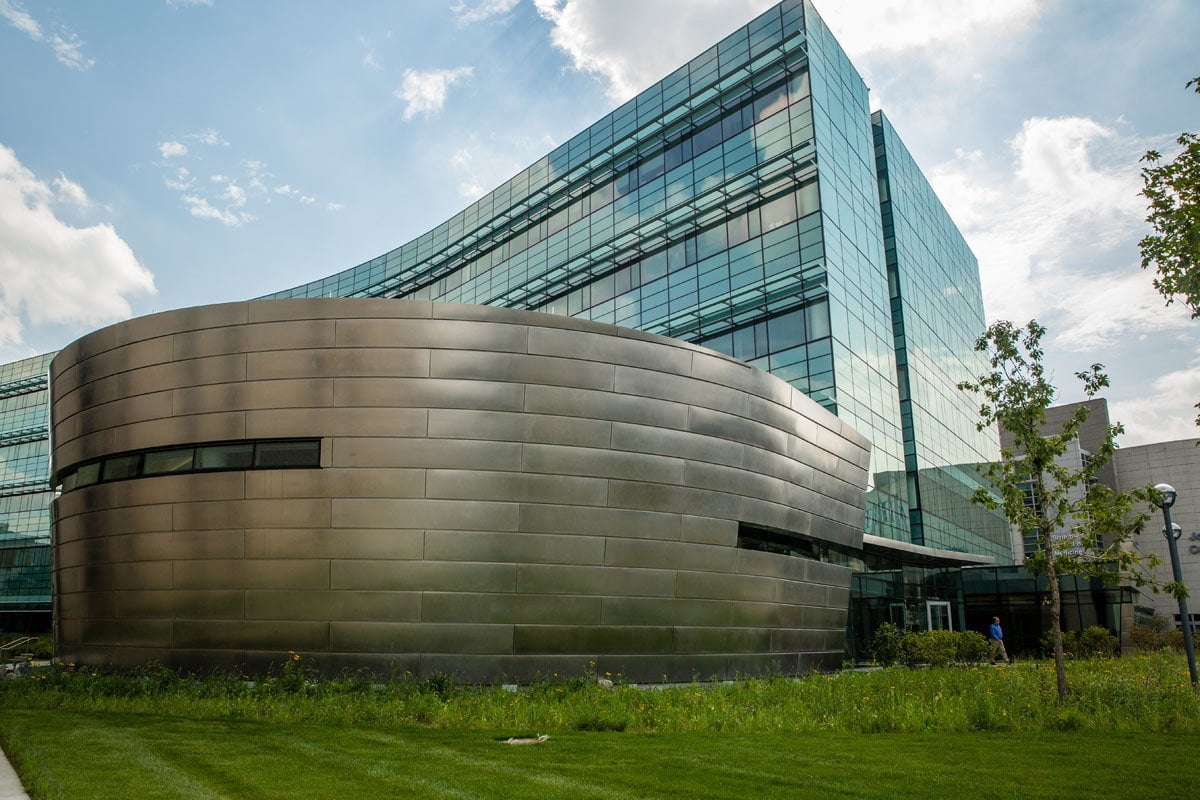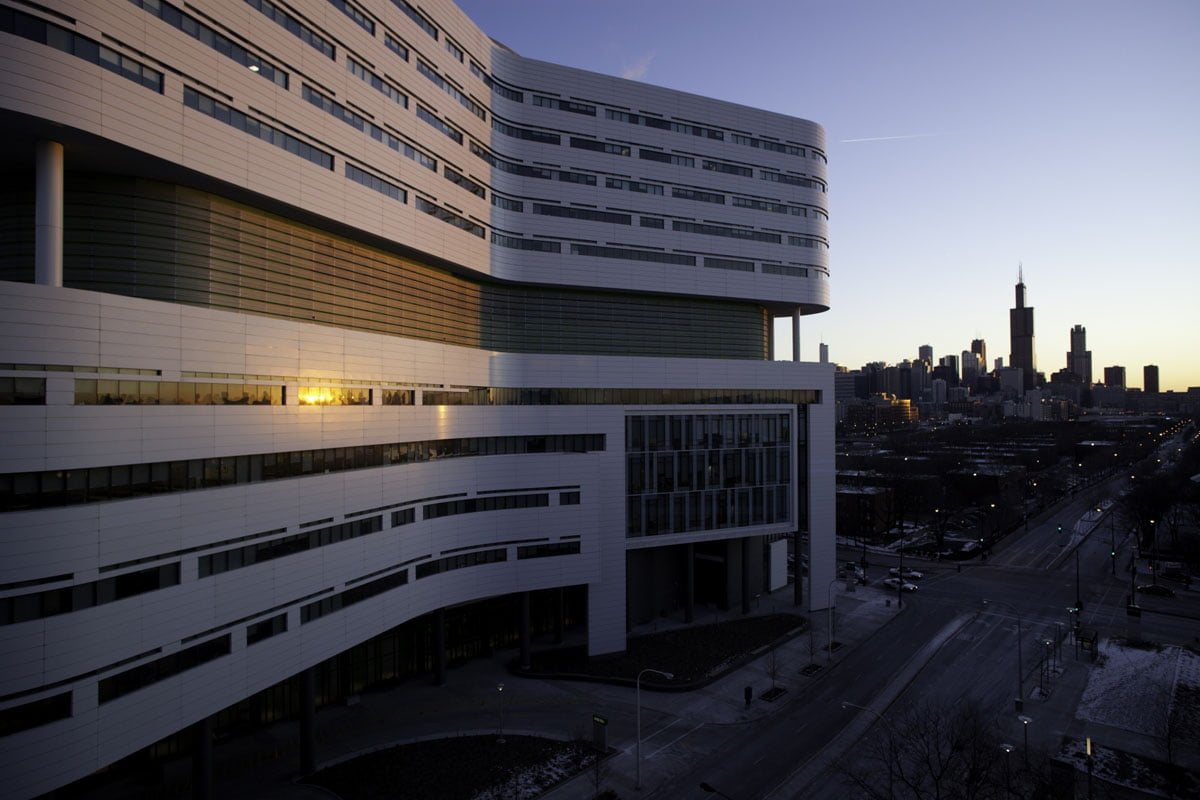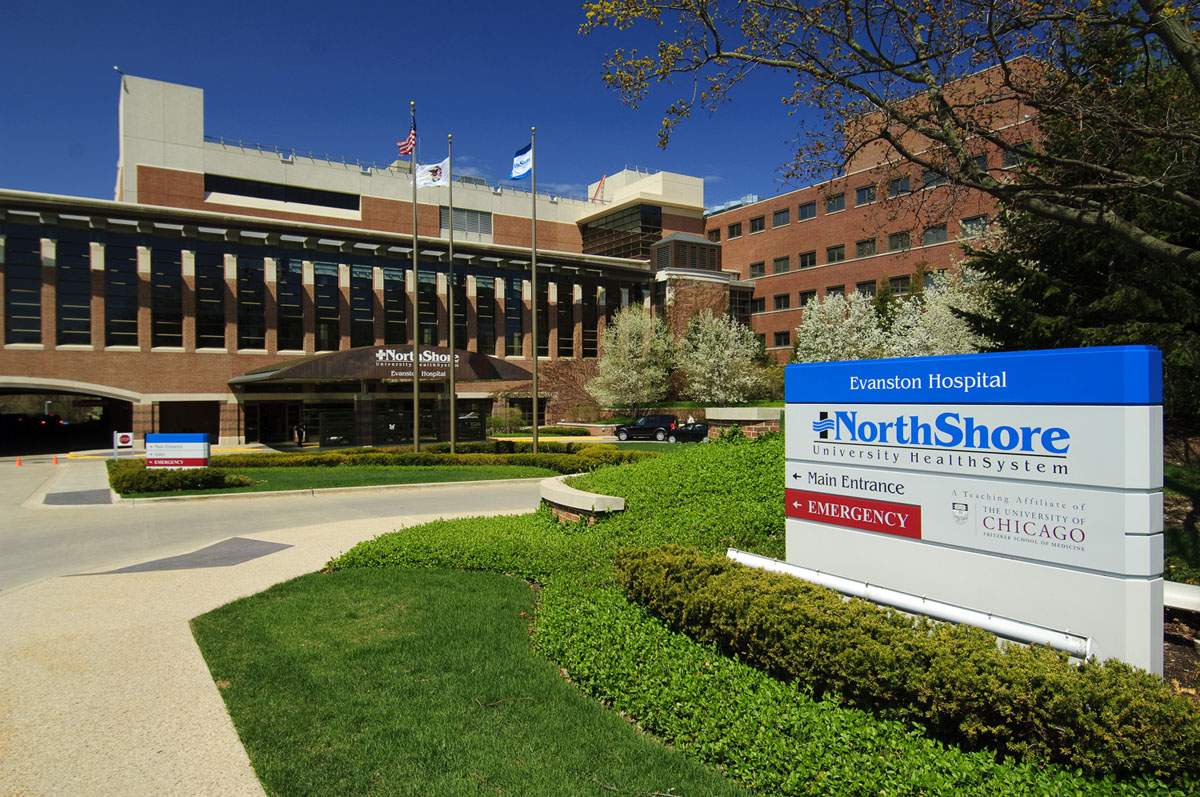Nearly 100 university, hospital, community, & patient partners kick-off new era of collaboration
Chicagoland universities and health systems are teaming up to improve health equity in partnership with the Chicago Department of Public Health, community members, nonprofits, and others thanks to a $51 million grant from the National Institutes of Health (NIH).
“We’re excited to launch special collaborations with people from Chicagoland neighborhoods, nonprofits, and other organizations to co-create research and explore how life experiences interact with human biology to determine health, so that everyone can ultimately enjoy longer, healthier lives.” said Julian Solway, MD, Dean for Translational Medicine at The University of Chicago.
Nearly 100 leaders and community partners celebrated the partnership at a red-carpet launch event Nov. 16 at MATTER at The Merchandise Mart, with performances by The Ransom Notes UChicago student a capella group and Yanna Cello. The NIH’s National Center for Advancing Translational Sciences (NCATS) awarded the grant to the Institute for Translational Medicine (ITM), a partnership between The University of Chicago and Rush in collaboration with Advocate Aurora Health, the Illinois Institute of Technology, Loyola University Chicago, and NorthShore University HealthSystem. More than 9.4 million people across Chicagoland live in the ITM coverage area, spanning Cook, DuPage, Lake, Kendall, Will, Peoria, Woodford, McLean, Livingston, Kankakee, Winnebago, DeKalb, and McHenry Counties in Illinois, as well as Lake County, Indiana.
“The environment, access to green space, violence, lifestyle activities, the food we eat, stress, and more affect everyone’s physical health. We hope to uncover solutions that could only be found by engaging the public at every level of research on the topics they care about the most,” said Solway, Founding Director of the ITM.
People who live in different geographic areas can take advantage of new jobs at the ITM to bridge the gap between Chicagoland neighborhoods and universities and health systems.
“It’s critical to understand the range of people’s lived experiences so that they can advocate for the health causes they care about and advise researchers on how best to design studies that will benefit them,” said Josh Jacobs, MD, ITM Director and Vice Dean for Research at Rush Medical College. “This grant gives the public a platform to do that unlike ever before.”
This initiative was motivated in part by The Chicago Department of Public Health’s Health Chicago 2025.
This funding will also launch a Community-Based Research Network of nonprofits and other organizations who want to address the health issues plaguing their members by working with physicians and researchers.
“So much of our health goes beyond what is examined in the doctor’s office where you undergo a physical exam and have your blood pressure checked,” said Lainie Ross, MD, PhD, ITM Director. “A lot of our health is based on social factors like what you eat for breakfast and at what time, how often you exercise, whether you live near a highway or park, how much sunlight you get every day, and other things that are often not addressed. We need to better integrate clinical variables with social and emotional variables.”
About the Institute for Translational Medicine (ITM)
The Institute for Translational Medicine (ITM) helps you live your best life by making research breakthroughs happen and getting those discoveries into the real world to improve your health as soon as possible.
The ITM is a partnership between the University of Chicago and Rush in collaboration with Advocate Aurora Health, Illinois Institute of Technology (Illinois Tech), Loyola University Chicago, and NorthShore University HealthSystem that’s fueled by about $51 million in grants from the National Center for Advancing Translational Sciences at the National Institutes of Health through its Clinical and Translational Science Awards (CTSA) Program.
We’re part of a network of more than 50 CTSA Program-supported hubs across the country working to slash the time it takes to develop and share new treatments and health approaches. We work with you and for you to make participating in health research easy, so that together we improve health care for all.
Join the movement and learn more about how we help researchers, physicians, community members, industry, government organizations, and others. Visit us at chicagoitm.org and connect with us on Facebook, Twitter, Instagram, YouTube, and LinkedIn @ChicagoITM.
This project is supported by the National Center for Advancing Translational Sciences (NCATS) of the National Institutes of Health (NIH) through Grant Numbers UL1TR002389, KL2TR002387, and TL1TR00238 that fund the Institute for Translational Medicine (ITM). The content is solely the responsibility of the authors and does not necessarily represent the official views of the NIH.
Media Contact: Sara Serritella, Director of ITM Communications, serritella@uchicago.edu



